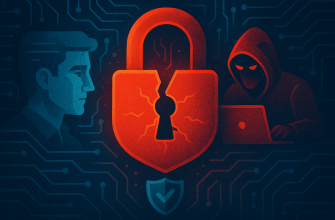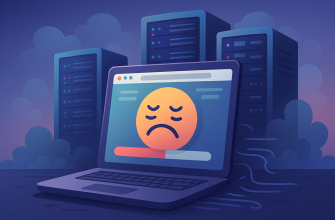The term “backup” (from the English “backup” – reserve copy) refers to the creation of a duplicate of important files and folders. It is not just copying but a strategically crucial process that ensures the preservation of information and the uninterrupted operation of your digital assets. In today’s world, where data has become an invaluable resource, regular backups are not a luxury but a necessity.
What Makes a Backup Effective?
Choosing a Backup Strategy
In the context of virtual private servers (VPS), backups take on special significance. Hosting a website on a VPS, while offering a high level of reliability, does not eliminate the risks of data loss. Even with round-the-clock technical support from the provider, unforeseen situations can occur. This is where a backup serves as reliable insurance, allowing for the quick restoration of a resource and preventing significant financial and reputational losses.
An ideal backup should have the following characteristics:
- Integrity. All files and folders must be copied completely and without damage. An incomplete backup can make data recovery impossible or extremely difficult. Modern backup solutions use data integrity verification methods to ensure their preservation.
- Isolation. Backup copies should be stored separately from the original data. This is a key requirement to prevent loss due to failures on the main server and protect against malware attacks that could encrypt or destroy both the original data and its copies stored on the same device. Ideally, backups should be kept on different physical media, in different geographical locations (such as cloud storage in different regions), or following the 3-2-1 principle (three copies of data on two different media, one copy stored off-site).
- Regularity. The backup schedule should be set considering the frequency of data changes. For dynamically updated websites, frequent backups (daily or even hourly) are necessary, whereas for static sites, a weekly or monthly backup may suffice. It is also essential to consider the type of backup: full (complete copy), incremental (only changes are copied), or differential (changes since the last full backup are copied).
- Testing. Regular testing of the backup restoration process is a critically important procedure. It ensures that backups are functional and that the recovery process works correctly, helping to avoid surprises in the event of an actual disaster.
Causes of Data Loss on VPS and How Backups Help Prevent Them
Apart from previously mentioned RAID controller failures and hacker attacks, other causes of data loss include:
- VPS malfunctions. Issues with the operating system, software, or hardware components.
- Human error. Accidental file deletion, configuration mistakes.
- Natural disasters. Fire, flooding, earthquakes.
- Provider issues. Data center failures, maintenance operations.
Regular backups help minimize the consequences of all these scenarios. In case of data loss, you can quickly restore your website and resume operations, minimizing downtime and financial losses.
Choosing a Backup Strategy
Selecting the optimal backup strategy depends on several factors, including data size, frequency of changes, budget, and recovery time requirements. There are various tools and services for creating backups, ranging from simple utilities to complex professional solutions. It is essential to choose an option that meets your needs and ensures reliable storage of your valuable data.
Additional Backup Recommendations
- Use automation. Configure automated tasks to create backups at a scheduled time, reducing the risk of human error and ensuring process consistency.
- Data encryption. Protect your backup copies with encryption to prevent unauthorized access.
- Document the process. Create documentation on the backup creation and recovery process to help your team respond quickly when needed.
- Employee training. Educate employees on the importance of backups and proper data handling practices.
Do not underestimate the importance of backups—they are an investment in the security and stability of your digital business.









